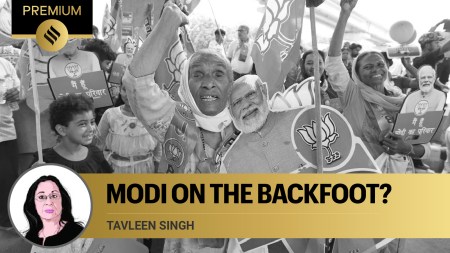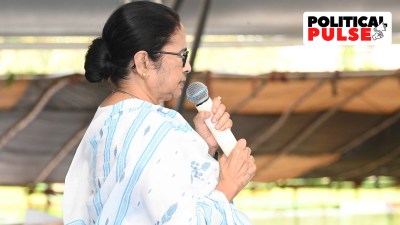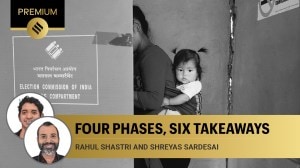- India
- International
Copyright infringement: Delhi HC directs Telegram to disclose info of users involved
Telegram had argued that under its privacy policy, unless a person is declared a terror suspect, user information could not be disclosed.
 The court also said that in the age of cloud computing and diminishing national boundaries in data storage, conventional concepts of territoriality could not be strictly applied. (File)
The court also said that in the age of cloud computing and diminishing national boundaries in data storage, conventional concepts of territoriality could not be strictly applied. (File)Rejecting Telegram’s argument that it could not disclose user information as that would violate its privacy policy and the laws of the jurisdiction where its physical servers are located, the Delhi High Court has directed the messaging app to disclose, in a sealed cover, details of the channels and devices used to disseminate content that allegedly infringed copyright, as well as the mobile numbers, IP addresses and email IDs of the users involved.
Justice Pratibha M Singh said in a ruling that the disclosure, on the basis of a court order, of the details of channel operators who are disseminating material that infringe copyright, or of the devices and other gadgets used for the same, could not be shielded under the grounds of protection of privacy or protection of freedom of speech and expression.
“The origin and source of the infringing material has to be traced and such devices or persons involved in the infringement ought to face consequences in accordance with law, including being held liable for damages. That would not be possible if the source of such infringing copies, i.e., the details of the infringing channels are not disclosed,” said the court in a Tuesday ruling that was made public on Wednesday.
The order was passed in a case filed by K D Campus Private Limited and its teacher Neetu Singh alleging that the study material prepared by them for various competitive examinations was being disseminated without authorisation through various Telegram channels. After getting the information sought from Telegram, the court said, it would consider passing further directions.
Telegram had argued that under its privacy policy, unless a person is declared a terror suspect, user information could not be disclosed. “Telegram has its servers based in Singapore which has encrypted data. Accordingly, decryption of that data would not be permissible except as per the laws of Singapore,” its counsel had further argued.

Justice Singh said the fact that Telegram chose to locate its server in Singapore should not mean that copyright owners in India would be left without a remedy for infringement. The courts in India would be perfectly justified in directing Telegram to adhere to Indian law and adhere to orders passed by Indian courts for disclosure of relevant information relating to those who infringe on copyright, the court said.
“Infringers cannot be permitted to seek shelter under Telegram’s policies merely on the ground that its physical server is in Singapore,” said Justice Singh, adding that Singapore’s Personal Data Protection Act makes an exception to privacy and recognises violation of laws.
The disclosure of personal data for the purpose of any proceedings related to infringement of copyright would be a recognised exception to data privacy under the Singapore law, said the court. Rejecting Telegram’s other argument that being an intermediary it is not required to disclose the details of the originator of the information, the court said merely disabling or taking down the channel is an insufficient remedy.
“The channels are clearly hydra-headed and are surfacing one after the other owing to the ease with which they can be created, with just another mobile number or email address,” said the court, adding that infringements would have to be nipped in the bud and that courts could not perpetually supervise the issue.
The court also said that in the age of cloud computing and diminishing national boundaries in data storage, conventional concepts of territoriality could not be strictly applied.
Noting that teachers, and the education system as a whole, have taken major initiatives to ensure that students have access to learning material online during the Covid-19 pandemic, the court said the protection of copyright must be evolved in accordance with changing times or it would have a chilling effect on the progressive initiatives taken by educators.
The plaintiffs had submitted before the court that though Telegram took down channels disseminating material that infringe on copyright, more and more continue to come up on a daily basis. The court on July 28, 2020 had passed an interim order in the case. Since the order did not prove effective in curbing the unauthorised dissemination, the plaintiffs moved an application seeking disclosure related to the people operating such channels.
May 17: Latest News
- 01
- 02
- 03
- 04
- 05









































